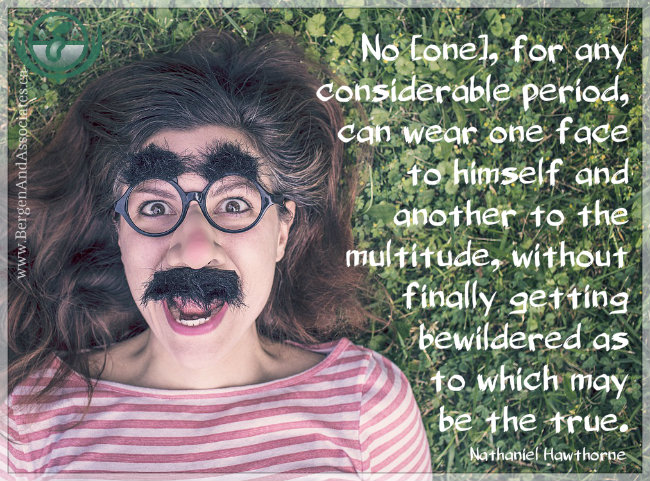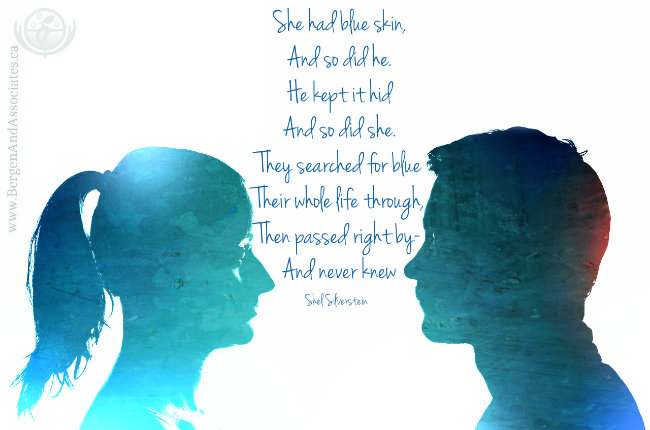Robin Williams died last week.
A man who made us all laugh. I think this was where I first met Mr. Williams:
A man whose movies challenged us to not only laugh but to see how laughter fits in with challenge, and war, with growing up, and loving your kids so much it hurts. Robin Williams’ movies were hysterical…but sometimes tears aren’t so far away from laughter, eh?
Dahlia Kurtz sent me this article last week from Psychology Today, looking at how folks use humour in ways that allows a person to hide behind the joke, or conceal their pain underneath the humour. She suggested that we talk about it on air during our next weekly chat.
I asked folks who follow us on Facebook to comment on their perspective of the article. I’m grateful for those who did…some commented on the article on Facebook, others messaged me privately. I’m grateful to you all.
Ways in which humour works to hide pain:
1. It works as a decoy.
Remember those old black and white movies, where we would see a coupla guys (usually wearing a suit and tie) want to rob a bank? And their plan was to light a small fire at the other end of town. We would watch, slapstick comedy style, as all the emergency vehicles drove towards this fire, leaving the crooks free to rob the bank at the other end of town.
It was a diversionary tactic–and it worked with varying success.
A reader wrote:
Humour is always what I used to direct away from the pain, If I was up enough to do it. My friends thought I was hysterical, my husband thinks I should do stand-up (seriously!). I am on antidepressants and I am in therapy. I am okay, for now.
Humor is an attempt to fool people…to have them look over here at this joke, and away from over there at that pain.
2. It works as a mask.
It covers the pain.
Another reader wrote:
A friend once asked of me, “Promise me that you’ll always laugh at my jokes!” His humour did make me laugh all the time; he was quick witted, clean thoughts, great at puns and word play, could imitate voices, etc. However, others, even his own wife and family, didn’t think he was funny and said so. They saw his humour as a bid for seeking attention and frowned on that. Seems that when they needed him to be serious, he couldn’t be what they wanted. His request of me to always laugh at his jokes, may have been a humour mask – to hide insecurities or to be in control and do what he pleased, rather than do the bidding of his family members, or to carve out his own unique niche in his social circle.
Humor is a way to attract a sort of connection…laughter, is after all, a wonderful way for folks to connect. But when it is a way to avoid authentic connection, rather than create it, it becomes a problem.
Some folks will do anything to avoid getting serious. They refuse to talk about the tough stuff.
The very sad part?
For some folks who have used humour as a mask for so long, it’s like the mask gets fused to their face. If you ask them to really talk at deeper levels, they aren’t even quite sure what you mean. For some folks who use humour often and long enough, they lose connection with parts of themselves that are more complex, that has experienced pain and loss.

They aren’t able to empathic with those who reach out to them…and others may stop reaching out…and then it gets lonely.
The “class clown” who joked to get others’ approval now ends up distant and alone.
3. Sarcasm is a “funny” way to get some digs in, but not really
There is a difference between teasing and sarcasm. Sarcasm cuts–it uses humour to make a point, and often hides critical messages. Sarcasm can a way to be mean without owning the anger, or being direct about it.
You know that joke that somebody says about the deadline you missed, or the meeting you forgot…only you’re not laughing? Yeah…that’s sarcasm…and it can be an indirect way to express pain. It’s tricky though, because you’re expected to laugh at sarcasm even when it’s not funny…and to name it and ask about what’s behind the dig often elicits a shrug, and some hands up in a defensive way with a comment about “Don’t take it so seriously--I was only joking!”
And the person using sarcasm–not getting their underlying hurt/anger/disappointment dealt with directly–and often, not at all.
4. Self Deprecating humour is a way to cut yourself down
Often self deprecating humour, where one makes jokes at one’s own expense is often a way to beat others to the punch. After all, if you’re harder on yourself than anybody else, then you can prevent hurt–theoretically, anyway. (What a person might not realize is how traumatizing it is to be beat up by oneself.)
People often use humour that is self critical as a way to ensure that others can’t hurt them.
One reader wrote a contrasting idea:
My own sense of humour is self-deprecation, sarcasm, quick retorts. I have my own permission to poke fun at myself rather than joke at the expense of other people. I do find it annoying when on occasion someone felt that poking fun at myself meant that I was hiding deeper emotional issues and my own insecurities. I, on the other hand, felt that because I can poke fun at my own insecurities, I’m in a much better shape to deal with them – I don’t deny them. Everyone has issues with something – and I’m coping well with mine.
5. Humor is an authentic expression appropriate to the situation, as a temporary mask.
Humor in it’s most pure form, isn’t a mask at all, but an acknowledgement of common humanity, of enjoying the lighter side of life:
From a reader:
My sweet husband, who passed away 1 1/2 yrs. ago now, asked me to tone down my sarcasm and I chose not to use it with him – just with my women friends. His sense of humour was a quiet, well-timed, dry-dead pan response – that usually took some time to catch! Miss those so much! No mask there – just delightful interactions with each other for 46 blessed years.
Humor is designed to connect people. Masks, of any kind, disconnect people from each other.
Humor lightens life up. Masks weigh people down…they get heavy and burdensome.
Humor creates energy. Masks consume energy.







Write a Comment